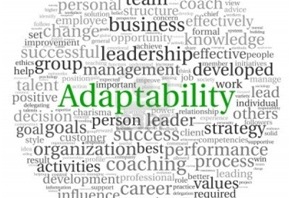If we had to point to one quality within a leader that can almost guarantee the prospect of success, it is a belief in the power of self-awareness and adaptability. We have found that among exceptional leaders, self-knowledge and change are a constant in their lives. ~Bob Rosen
How does your behavior affect other people? How do other people feel when they are around you? Can you recognize the impact you have on others and adjust your own behavior to create more mutually beneficial relationships? These are critical questions for effective leadership and I’m beginning to believe they may be at the very heart of effective leadership.
behavior affect other people? How do other people feel when they are around you? Can you recognize the impact you have on others and adjust your own behavior to create more mutually beneficial relationships? These are critical questions for effective leadership and I’m beginning to believe they may be at the very heart of effective leadership.
Bob Rosen, author of Grounded: How Leaders Stay Rooted in an Uncertain World, emphasizes the importance of not only self-knowledge but also change and adaptability. It’s not enough to know what your strengths and weaknesses are to be effective. Leaders also need to know how their behavior impacts others and then adapt their behavior to increase their leadership effectiveness. This isn’t just Rosen’s opinion; there’s research to support this belief. Following are a few excerpts from his book.
Findings like these point to the need for a leadership approach that is dynamic, holistic, and integrated. They strongly suggest the importance of agility and adaptability and of paying more attention to relationships inside and outside the company. They also underscore the need to understand your impact on others, consider the bigger picture when solving problems, and become comfortable with unpredictable change.
According to one of the largest executive recruiting firms, 80 percent of executives have blind spots about themselves, and 40 percent have strengths they are unaware of or not using. Problem areas that could stall or hijack executives’ careers include being too narrow, failing to inspire or build talent, and not relating well to others.
According to research involving 41,000 managers, most people are unaware of how their behavior affects others. This is especially the case for those people who operate at the “extremes” (people who make quick decisions or, conversely, resist change and diligently follow rules).
Cadbury CEO Todd Stitzer tells of the consequences: “If you think you can make it up the hill and then realize that people are not following you, you’re going to be a pretty lonely guy when you’re near the top. So you have to know how people are feeling, and you have to monitor what comes out of your mouth. You’re always self-correcting.”
Many of us are probably familiar with one of Maya Angelou’s most well-known quotes: “I’ve learned that people will forget what you said, people will forget what you did, but people will never forget how you made them feel.” As effective leaders, we need to be aware of how our behavior impacts others and then we must adapt, as Todd Stitzer said, we must always be self-correcting.